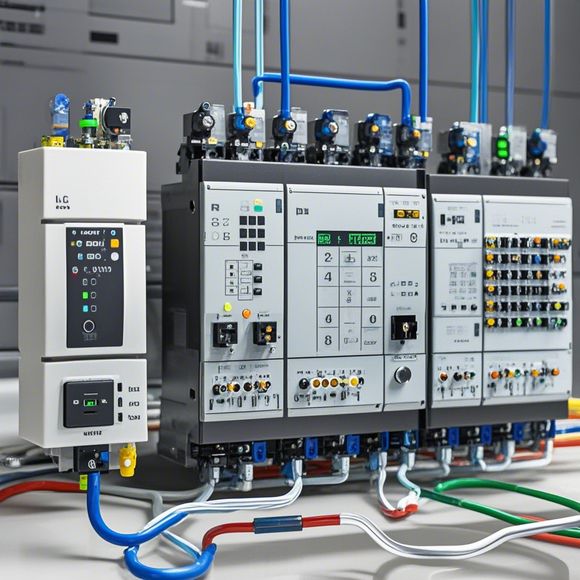PLC Controllers: The Backbone of Modern Manufacturing Automation
Introduction:

Welcome to the world of modern manufacturing automation! Today, I'm thrilled to introduce you to the powerhouse behind the scenes – the PLC (Programmable Logic Controller) controller. This innovative technology has revolutionized the way we operate factories, from simple assembly lines to complex production lines with multiple machines and processes. So, let's dive into the world of PLC controllers and see how they can help your business thrive in today's competitive market.
What is a PLC Controller?
A PLC controller, also known as a Programmable Logic Controller, is a powerful computer system that controls various industrial processes. It consists of a microprocessor or central processing unit, input/output interfaces, memory, and software for executing instructions. Unlike traditional mechanical switches or relays, PLCs are programmable, allowing for precise control over complex systems.
Why Use PLC Controllers?
There are several reasons why PLC controllers are essential for any manufacturing or industrial operation. Firstly, they offer high-speed processing capabilities, enabling quick and efficient responses to changing conditions. Secondly, they provide fault-tolerant operation, ensuring that even if one part fails, the entire system remains functional. Thirdly, PLCs are highly reliable, with low maintenance requirements and long lifespans. Finally, they can be easily customized to meet specific production needs and improve efficiency.
Key Features of PLC Controllers
Here are some key features of PLC controllers that set them apart from other automation technologies:
1、Programmability: PLCs are fully programmable, allowing for customization and flexibility in controlling various processes. You can write and execute programs directly on the PLC, making it easy to adjust settings and optimize performance.
2、High-Speed Processing: PLCs are designed to handle high-speed data transfer and processing, enabling real-time monitoring and control of complex systems. This makes them ideal for applications such as robotics, automation, and process control.
3、Fault Tolerance: PLCs are designed with redundancy and fail-safe mechanisms to ensure continuous operation in case of hardware failures or unexpected events. This helps to minimize downtime and reduce costs associated with repairs.
4、Robust Design: PLCs are built to withstand harsh environments and operate efficiently under varying conditions. They come in various sizes and configurations to suit different applications and budgets.
5、User-Friendly Software: Most PLC controllers come with intuitive software that makes it easy to install, configure, and monitor the system. Additionally, many manufacturers offer cloud-based solutions that allow remote access and management of the system.

Applications of PLC Controllers
PLC controllers are used in a wide range of industries, including:
1、Automotive: In automotive manufacturing, PLCs are used to control vehicle components such as engines, transmissions, and brakes. They enable precise control of timing and temperature, ensuring optimal performance and safety.
2、Manufacturing: PLCs are widely used in manufacturing industries for controlling machinery, conveyors, and assembly lines. They enable efficient production and minimize waste by automatically adjusting parameters based on real-time data.
3、Healthcare: In healthcare settings, PLCs are used to control medical equipment such as ventilators, surgical instruments, and patient monitors. They ensure accurate and timely patient care while minimizing human error.
4、Retail: PLCs are employed in retail stores to manage inventory levels, track sales data, and optimize store operations. They enable efficient stock replenishment and customer service improvements.
5、Agriculture: In agriculture, PLCs are used to control irrigation systems, fertilizer application, and crop monitoring. They enable precision farming and maximize crop yields while reducing water and energy consumption.
Conclusion:
In conclusion, PLC controllers are an essential tool for modern manufacturing automation. With their advanced features and versatile applications, they have transformed industries across the globe. By investing in PLC controllers, businesses can achieve higher efficiency, reduced downtime, and improved product quality. So why not consider PLC controllers for your next manufacturing project? Contact us today to learn more about our extensive selection of PLC controllers and how we can help you take your business to the next level!
Content expansion reading:
Articles related to the knowledge points of this article:
Smart Manufacturing Solutions with PLC Integrated Machinery
PLC Programming for Automation Control in the Manufacturing Industry
How to Use a PLC Controller for Your Business
PLC (Programmable Logic Controller) Control System Basics
Plumbers Rule! The Role of PLC Controllers in the World of Waterworks